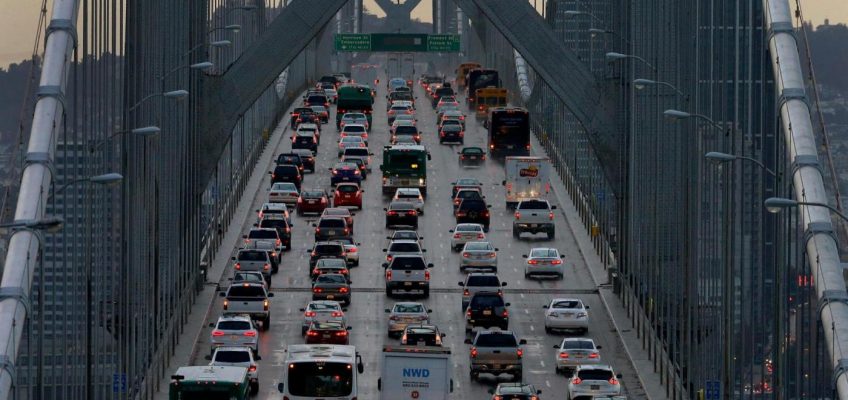By MARY CLARE JALONICK
WASHINGTON (AP) — The Senate voted on Thursday to block California’s first-in-the nation rule banning the sale of new gas-powered cars by 2035, acting to kill the nation’s most aggressive effort to transition toward electric vehicles as President Donald Trump’s administration has doubled down on fossil fuels.
Related Articles
Judge blocks Trump administration’s mass layoffs at the Education Department
FDA panel debates COVID vaccine recipe as questions swirl about fall shots
House Republicans pass Trump’s big bill of tax breaks and program cuts after all-night session
Things to know about ‘no tax on tips,’ Trump’s tax pledge that’s included in GOP budget bill
Cuomo’s comeback faces a new challenger: Donald Trump’s Justice Department
The resolution approved by the Senate goes to the White House, where Trump is expected to sign it, along with two other measures blocking California’s rules that the Senate is poised to pass. The House approved the three resolutions earlier this month.
The GOP effort to kill the rules could have a profound impact on California’s longtime efforts to curb air pollution. The push comes after Senate Republicans established a new exception to the filibuster on Wednesday to allow them to weigh in on the issue.
California makes up roughly 11% of the U.S. car market, giving it significant power to shape purchasing trends. Vehicles are one of the largest sources of planet-warming emissions.
California Gov. Gavin Newsom and state air regulators say that what Congress is doing is illegal and they will likely sue to keep the rules in place.
The two other resolutions would block rules to cut tailpipe emissions from medium- and heavy-duty vehicles and curb smog-forming nitrogen oxide pollution from trucks. Democrats charge that Republicans are acting at the behest of the oil and gas industry and they say California should be able to set its own standards after obtaining waivers from the Environmental Protection Agency.
Republicans say the phaseout of gas-powered cars, along with other waivers that California has obtained from the EPA, is costly for consumers and manufacturers, puts pressure on the nation’s energy grid and has become a de facto nationwide electric vehicle mandate.
“The waivers in question allow California to implement a stringent electric vehicle mandate, which – given California’s size and the fact that a number of other states have signed on to California’s mandate – would end up not just affecting the state of California, but the whole country,” said Senate Majority Leader John Thune, R-S.D., before the vote.
Newsom, a Democrat, announced plans in 2020 to ban the sale of all new gas-powered vehicles within 15 years as part of an aggressive effort to lower emissions from the transportation sector. Plug-in hybrids and used gas cars could still be sold.
The Biden administration approved the state’s waiver to implement the standards in December, a month before Trump returned to office. The California rules are stricter than a Biden-era rule that tightens emissions standards but does not require sales of electric vehicles.
Biden’s EPA said in announcing the decision that opponents of the California waivers did not meet their legal burden to show how either the EV rule or a separate measure on heavy-duty vehicles was inconsistent with the Clean Air Act.
Through a series of votes on Wednesday, Republicans set a new precedent for the Senate to reject the state EPA waivers with a simple majority vote, as opposed to the 60 vote threshold on legislation that is subject to a filibuster. The votes were a workaround that enabled them to hold the votes after the Senate parliamentarian agreed with the Government Accountability Office that California’s policies are not subject to the Congressional Review Act, a law that allows Congress to reject federal regulations under certain circumstances.
Democrats fought the changes, which were the latest attempt to chip away at the Senate filibuster after both parties have used their majorities in the past two decades to lower the threshold for nominations. Democrats tried in 2022 to roll back the filibuster for legislation, as well, but were thwarted by members of their own caucus who disagreed with the effort.
Republicans have insisted that they would not try a similar move after regaining the majority this year. But Senate Democratic leader Chuck Schumer of New York said the move to block California’s laws were a “point of no return” and called the Republicans “fair weather institutionalists.”


Leave a Reply